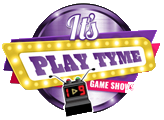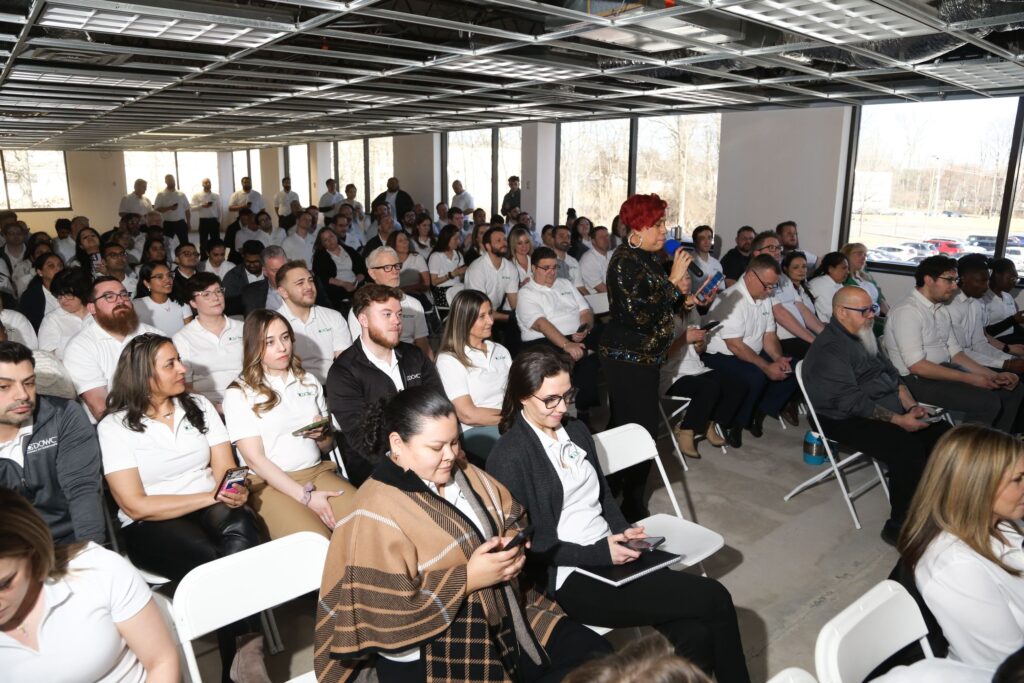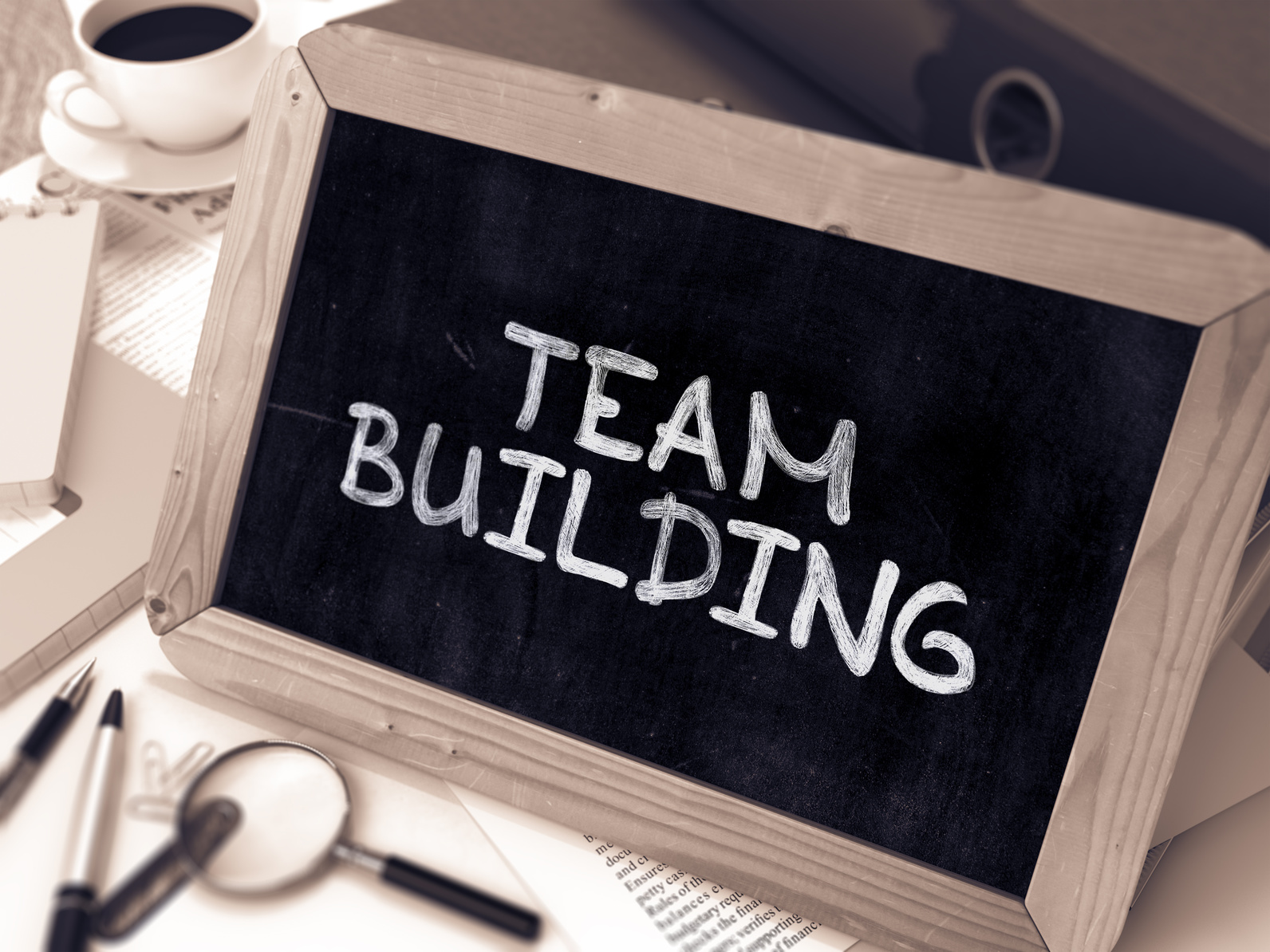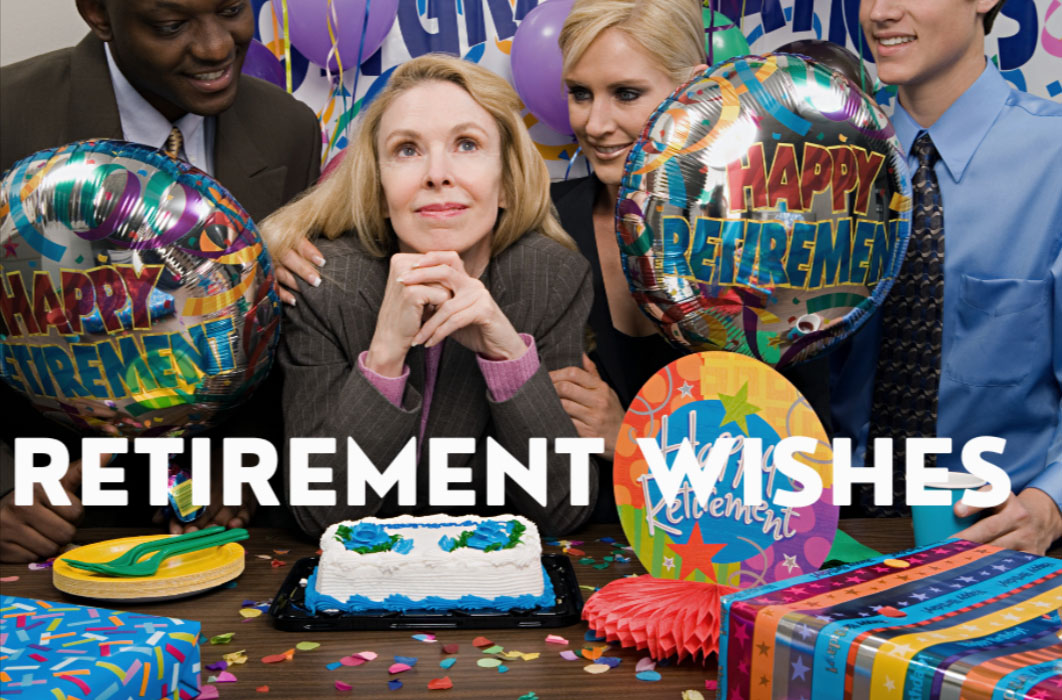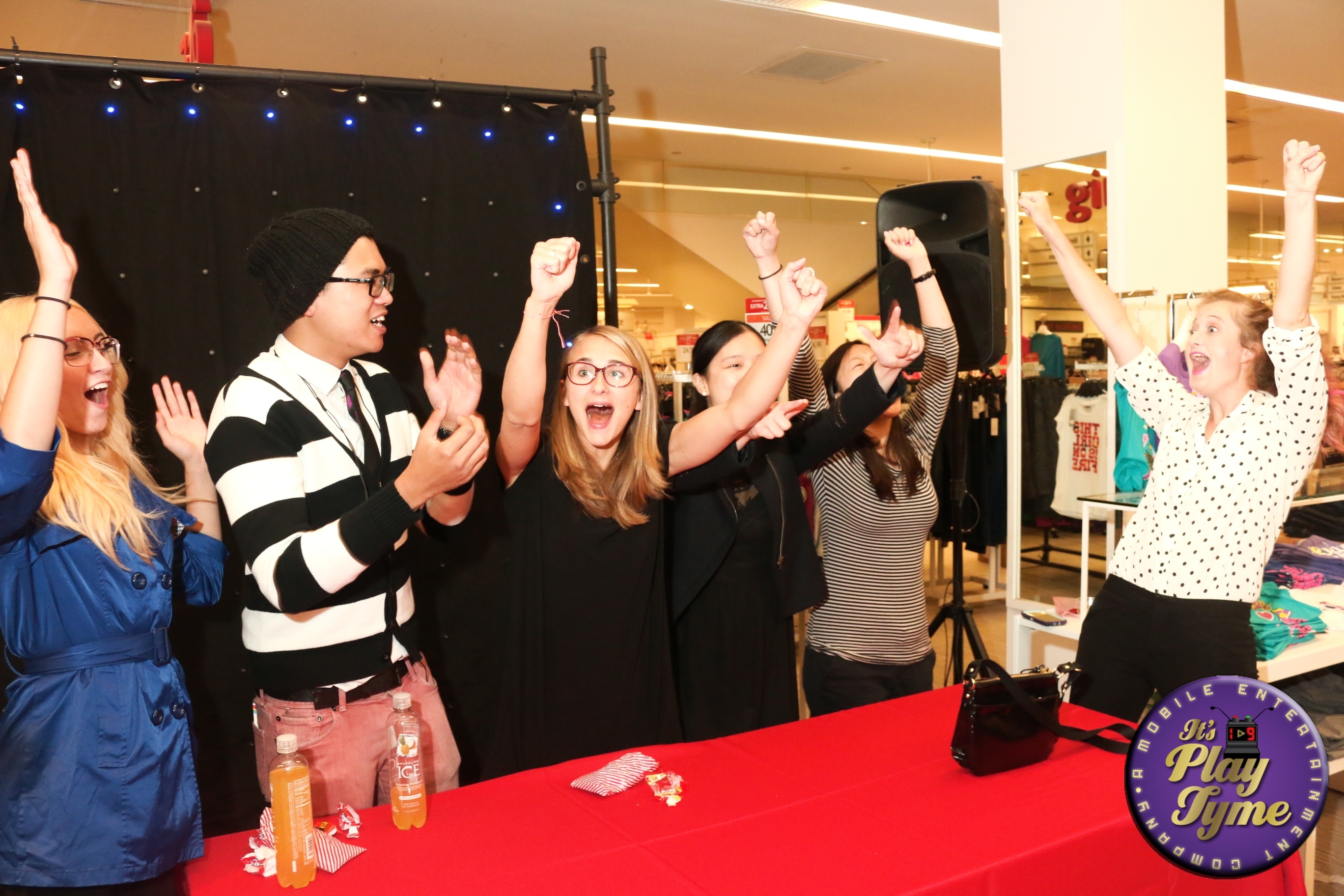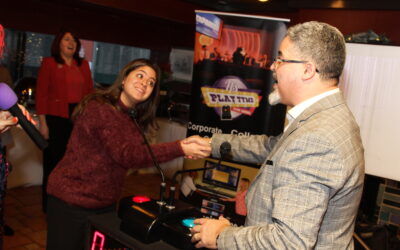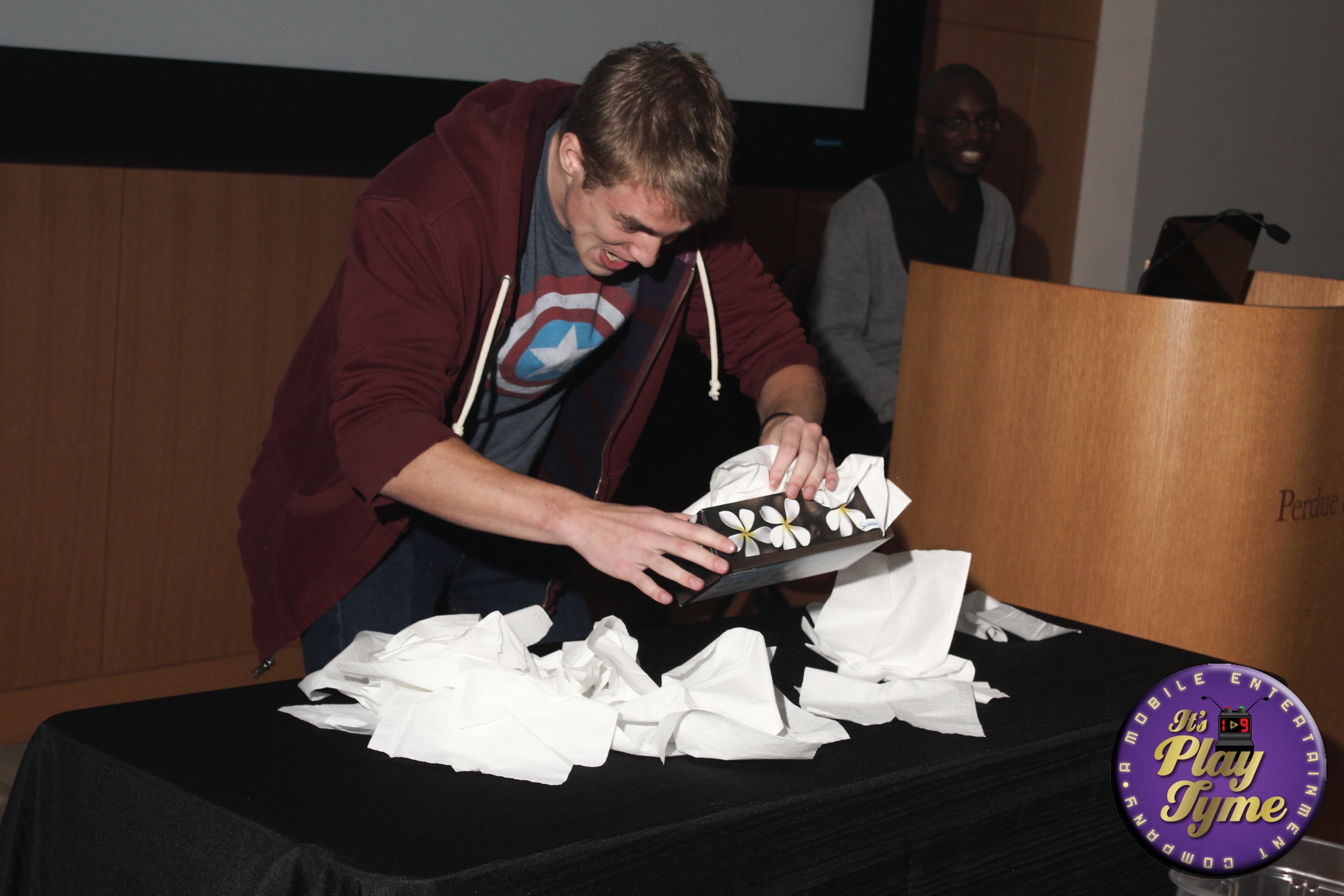Did you know that incorporating game show elements into team-building activities can boost employee morale by up to 80%? This surprising statistic highlights the potential of game show team building to transform workplace dynamics.
With over 15 years of experience in team building, it’s clear that game shows like Jeopardy and In It to Win It can breathe new life into the workplace. By leveraging familiar game show formats, organizations can create a perfect balance of fun, competition, and collaboration.
Game show team-building activities have emerged as a powerful tool for enhancing workplace interactions and creating memorable experiences. These events naturally break down hierarchical barriers, allowing employees to interact on equal footing.
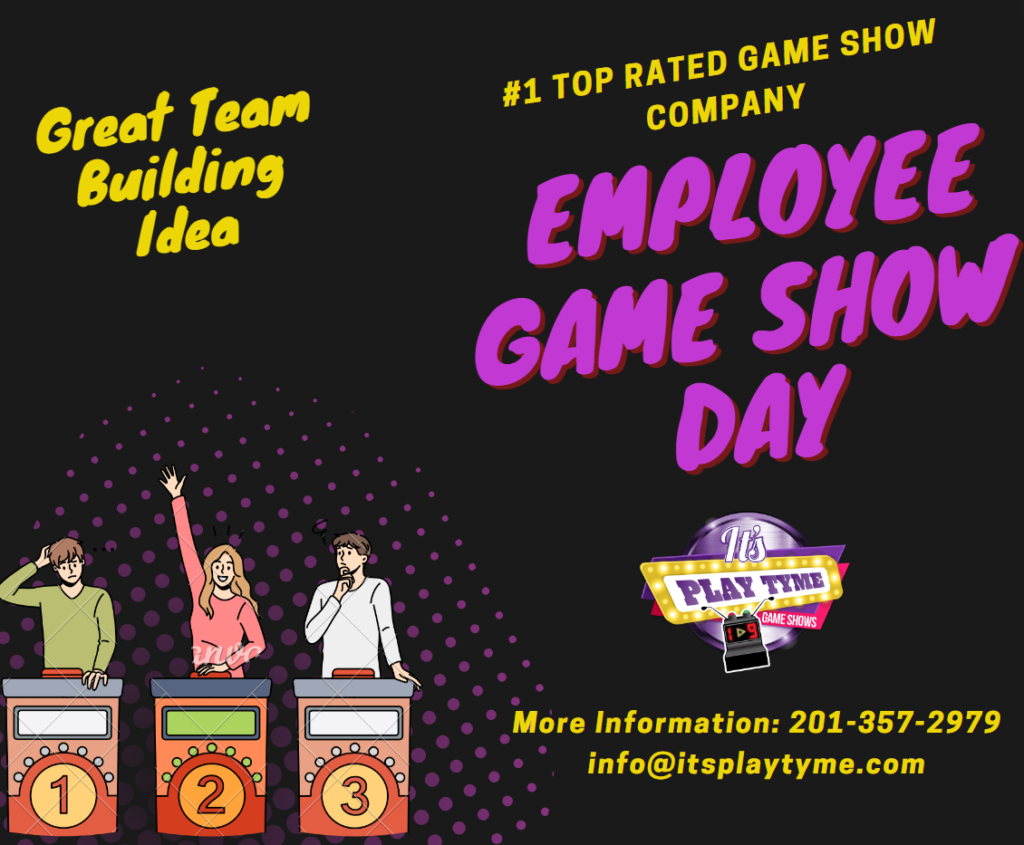
employee-engagement-game-show-idea
Key Takeaways – Game Shows for Team Building Activities
- Team-building game show activities enhance workplace dynamics and boost morale.
- These activities create a balance of fun, competition, and collaboration.
- Familiar game show formats make participation natural and engagement immediate.
- Game shows help break down hierarchical barriers in the workplace.
- These events can be adapted for both in-person and virtual teams.
Why Game Shows Are Ideal for Team Building Activities
Incorporating game shows into team-building activities is a strategic move that fosters cohesion and communication among team members.
Office game show events are designed to do more than just provide a fun distraction; they’re about creating experiences that fundamentally change how team members interact with each other.
The Psychology Behind Game Show Team Building
Game shows tap into fundamental psychological triggers, anticipation, rewards, and friendly competition, which release dopamine and foster immediate engagement. This makes them uniquely effective for team-building game show activities. This psychological response is crucial in a team-building context, as it encourages active participation and fosters a sense of excitement around the activity.
Breaking Down Workplace Barriers
Game show activities create a unique “psychological safety zone” where employees feel comfortable taking risks, showing their personality, and engaging authentically with colleagues. By breaking down workplace barriers, game shows enable team members to see different sides of their colleagues, discover hidden knowledge, and share laughter.
The structured rules and turn-taking nature of game shows ensure equal participation opportunities, preventing dominant personalities from taking over. This leads to more authentic connections between team members and a more cohesive team overall.
Benefits of Team Building Game Show Activities
The benefits of using game shows for team building are multifaceted, ranging from improved morale to enhanced communication skills.
By incorporating game shows into their team-building activities, organizations can create a more engaging and collaborative work environment.
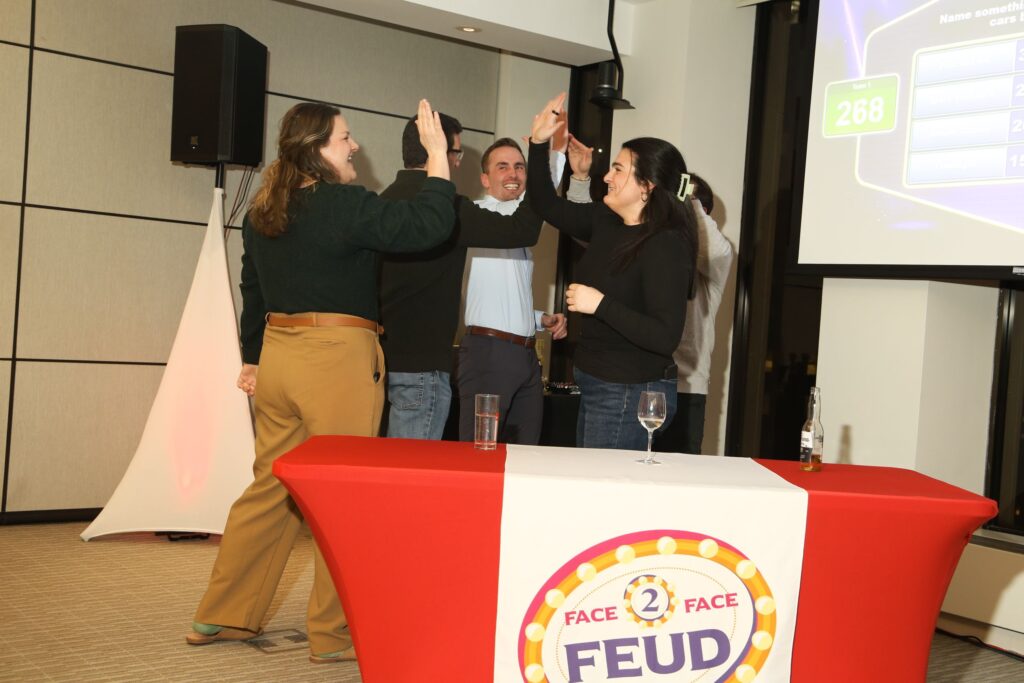
office games to play at work
Boosting Team Morale and Engagement
Game show team building activities significantly boost employee engagement by tapping into intrinsic motivators such as mastery, autonomy, and purpose. Teams that participate in these activities often show remarkable improvements in morale, which can persist for weeks after the event.
- Creates positive shared experiences that counterbalance work-related stress
- Delivers measurable improvements in workplace morale
- Boosts employee engagement through intrinsic motivators
Enhancing Communication Skills
Effective communication is crucial for success in game show challenges. Team members must articulate ideas clearly, listen actively to teammates, and collaborate effectively. This develops versatile communication capabilities, preparing teams for various workplace scenarios.
Fostering Healthy Competition
Game shows promote healthy competition, teaching teams to balance individual achievement with group success. This competitive element creates opportunities for leadership development as team members take turns leading different aspects of challenges based on their strengths.
- Encourages teams to work together authentically
- Develops leadership skills through varied challenges
- Balances individual and group success
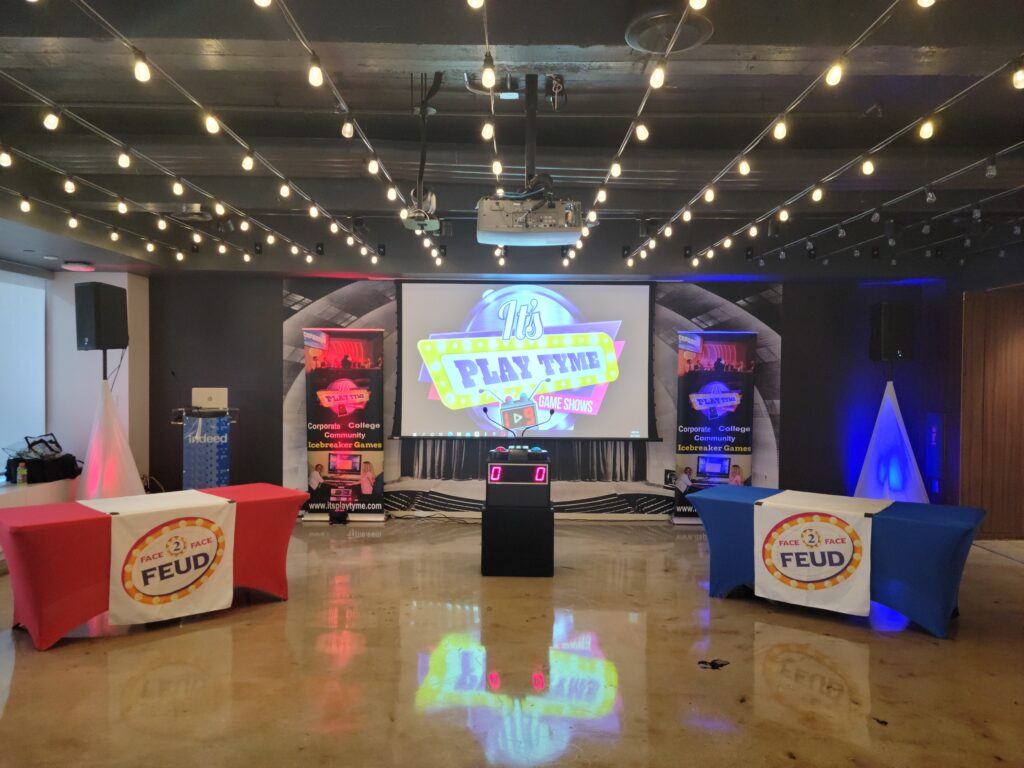
Face-2-Face Feud
Setting Up Your Office Game Show Event
To host a successful game show team building activity, careful planning is essential. This involves several key elements that work together to create an engaging and enjoyable experience for your team.
Essential Equipment and Resources
The equipment needed for a game show can vary depending on the format, but some common elements include audio systems, display screens or projectors, buzzers or response systems, and scoring mechanisms. Your game show extravaganza comes with a dedicated event manager and web app access, making it easier to manage the technical aspects.
- Audio systems for clear sound
- Display screens or projectors for visual elements
- Buzzers or response systems for participant engagement
- Scoring mechanisms, either digital or analog
Creating the Perfect Game Show Atmosphere
To create an authentic game show atmosphere, consider investing in simple elements like podiums, colorful lighting, theme music, and even a designated “host” outfit. These elements can dramatically increase engagement and make the experience more enjoyable for your team.
- Podiums for contestants
- Colorful lighting to set the mood
- Theme music to create energy
- A designated “host” outfit to add a professional touch
By combining the right equipment and atmosphere, you can create a memorable game show experience that your team will cherish.
Jeopardy: Test Your Team’s Knowledge

When it comes to team-building activities, few game shows are as effective as Jeopardy in testing knowledge and fostering collaboration. Jeopardy stands out as one of the most effective game show formats for team building because it balances individual knowledge with team collaboration, creating natural opportunities for colleagues to showcase their expertise. Learn More
To make Jeopardy a powerful team-building tool, consider creating custom categories that resonate with your team. These could include categories related to company history, industry knowledge, team achievements, and fun personal facts about team members. For more ideas on team-building activities, visit our blog on team-building events.
How to Create Custom Categories for Your Team
Creating custom categories transforms standard Jeopardy into a more engaging experience. The key is to make these categories relevant and interesting to your team members. This could involve company-specific trivia, industry insights, or even pop culture references that your team enjoys.
Scoring and Rewards That Motivate
The scoring system in Jeopardy should be designed to maintain engagement throughout the game. Implementing catch-up mechanisms like “Double Jeopardy” rounds can keep all teams invested, regardless of their early performance. Reward structures should align with your company culture, with recognition-based rewards or small trophies often creating more lasting positive associations with the experience.
Family Feud: Survey Says Team Building!
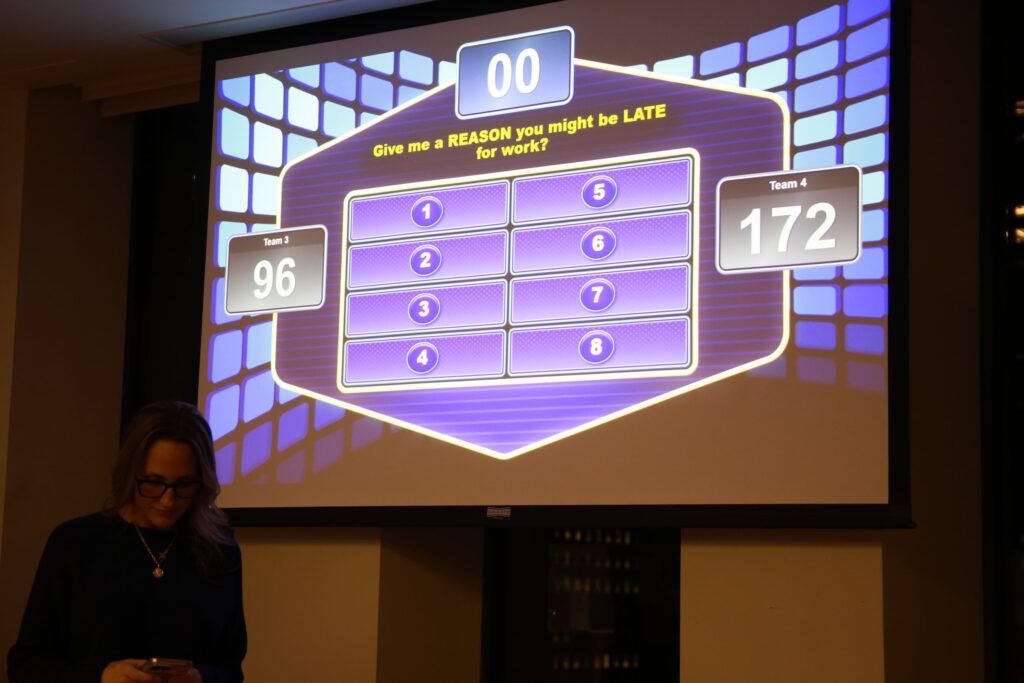
Feud work question, sudden death round Learn More
Survey says… Family Feud is a hit when it comes to team building, promoting collaboration and quick thinking among team members. This popular game show has been adapted for corporate team-building activities, offering a fun and engaging way to enhance team dynamics.
Crafting Survey Questions That Engage
Crafting effective survey questions is critical to the success of a Family Feud team-building activity. Questions should be relevant to your workplace or industry, yet remain accessible and generate diverse possible answers. Pre-event surveys of your organization can provide customized data, making the game more relevant and engaging.
Team Dynamics During Family Feud
During the game, team dynamics reveal natural leadership styles, conflict resolution approaches, and communication patterns, providing valuable insights for managers about team functioning. The fast-paced nature of Family Feud creates pressure situations similar to workplace challenges, allowing teams to practice performing under deadline pressure in a low-stakes environment.
Family Feud encourages teamwork and strategic thinking, making it an ideal activity for breaking down departmental silos and fostering cross-functional relationships. By structuring teams to include members from different organizational areas, companies can promote collaboration and enhance overall team performance.
Minute to Win It: Quick 60-Second Challenges for Big Laughs and Smiles
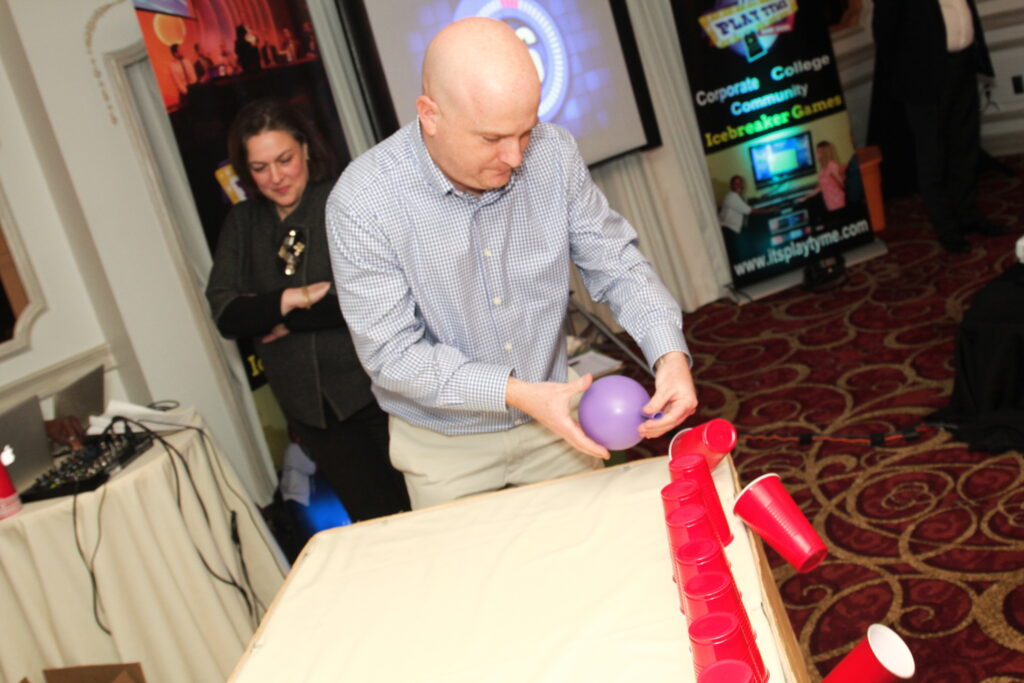
Transform your office into a game show arena with Minute to Win It, where creativity and fun collide. This entertaining team-building game is perfect for offices looking to inject some excitement into their daily routine. Learn More
60-Second Challenges That Anyone Can Do
Minute to Win It challenges are designed to be simple, quick, and accessible to everyone, regardless of physical ability or skill level. The tasks are often silly and humorous, generating significant team bonding through shared laughter. This format excels at revealing different strengths among team members, as various challenges highlight different skills such as steady hands, quick thinking, and creative problem-solving.
Adapting Challenges for Different Team Sizes
One of the key benefits of Minute to Win It is its flexibility. For larger groups, consider using relay formats where team members take turns completing challenges. For medium-sized teams, head-to-head competitions can foster a sense of friendly rivalry. For extensive departments, a tournament structure can be implemented to keep the competition engaging. Virtual adaptations have also proven effective, using common household items to allow remote teams to participate fully.
The quick succession of different challenges maintains high energy throughout the event, preventing any single team member from disengaging due to difficulty with a particular task. Facilitation best practices include demonstrating each challenge before teams attempt it, maintaining enthusiastic energy as the host, and capturing photos/videos of the funniest moments for post-event sharing.
Wheel of Fortune: Spin Your Way to Team Success

Wheel of Fortune, a beloved game show, can be leveraged to create engaging team-building experiences that foster collaboration and strategic thinking. At 42 seasons strong, it’s a cultural phenomenon that almost everyone is familiar with, making it an ideal format for team-building activities.
The Wheel of Fortune format encourages both strategic thinking and collaborative problem-solving, requiring minimal explanation while promoting equal participation among team members. Different team members can contribute to various aspects, from spinning the wheel to consonant selection and puzzle solving.
Team Building Game Show Puzzles Relevant to Your Industry
Creating industry-relevant puzzles transforms this game show into a powerful learning tool. Consider incorporating company terminology, industry trends, or strategic initiatives as puzzle solutions to enhance the team’s engagement and learning experience.
Virtual Adaptations for Remote Teams
Virtual adaptations of Wheel of Fortune have proven highly successful, with specialized software recreating the spinning wheel and puzzle board for remote teams. This maintains the engaging visual elements crucial to the experience, ensuring that remote teams can participate fully and enjoy the game.
The game naturally creates moments of collective excitement and anticipation, building shared emotional experiences that strengthen team bonds. Implementation strategies should consider team size, with larger groups benefiting from team-based play and smaller groups playing individually.
Team Building Game Show Activities: The Price Is Right Theme Idea
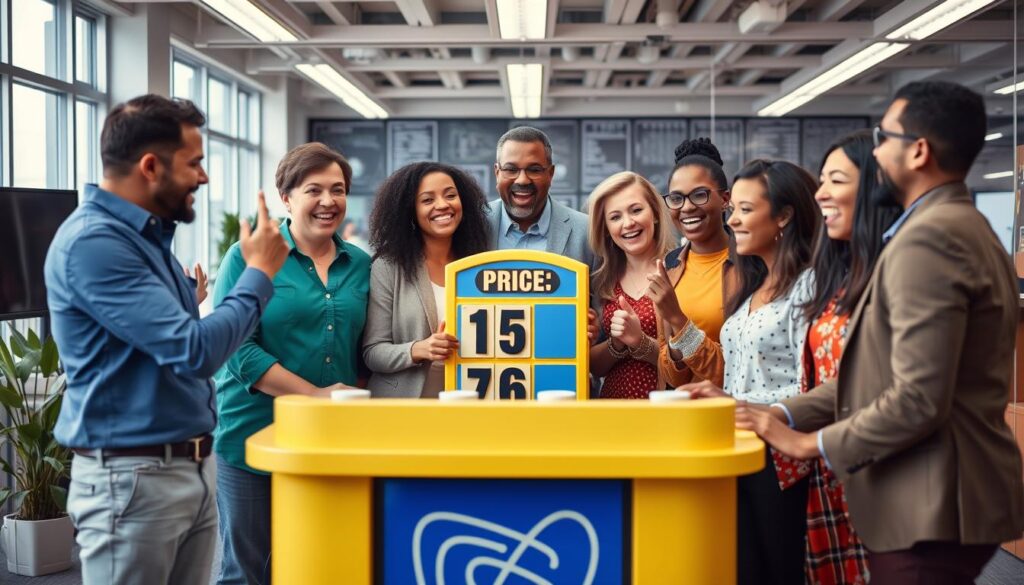
The Price Is Right game show format offers an exciting opportunity as a team-building activity. This popular game show is about guessing prices and a masterclass in strategic thinking and teamwork.
The format creates natural opportunities for team members to share knowledge and perspectives as they collaborate on price estimations. This game also reveals different thinking processes and encourages healthy debate and consensus-building.
Other Office-Friendly Pricing Games
Classic game show formats like Plinko, Cliff Hangers, and Showcase Showdown can be easily adapted to office environments. Simple modifications can make these games engaging and fun for team building.
These games promote teamwork and can be tailored to fit the specific needs and culture of the company.
Incorporating Company Products into the Game
Incorporating company products into the game creates a dual benefit of team building and product knowledge enhancement. This is particularly valuable for sales teams or during new employee onboarding.
By using company products, the game becomes more relevant and engaging, enhancing the overall team-building experience.
Customizing Team Building Game Show Activities for Your Team Needs
The key to a successful game show team-building activity lies in its customization to suit various team requirements. Effective customization ensures that the game show experience is engaging, relevant, and beneficial for all participants.
Adapting for Small vs. Large Teams
When it comes to team size, game show formats can be adapted to suit either small or large teams. For small teams (under 10 members), individual participation within a single game format is often more effective. In contrast, large teams benefit from tournament structures, team-based play, or rotating participation models that keep everyone engaged.
| Team Size | Recommended Format | Benefits |
|---|---|---|
| Small (under 10) | Individual participation | Encourages personal engagement |
| Large (over 10) | Tournament structures | Fosters team competition |
In-Person vs. Virtual Game Show Experiences
The format of the game show also depends on whether the team is in-person or virtual. Virtual game shows require specific technical considerations, such as robust technical support and more frequent interaction points, to maintain participant engagement.
Tailoring Difficulty Levels for Your Team
Customizing the difficulty level of game shows is crucial for maintaining team engagement. The difficulty level should be set based on the team’s existing knowledge base, industry experience, and interpersonal dynamics. A progressive difficulty structure, starting with accessible challenges, can help build confidence before introducing more complex elements.
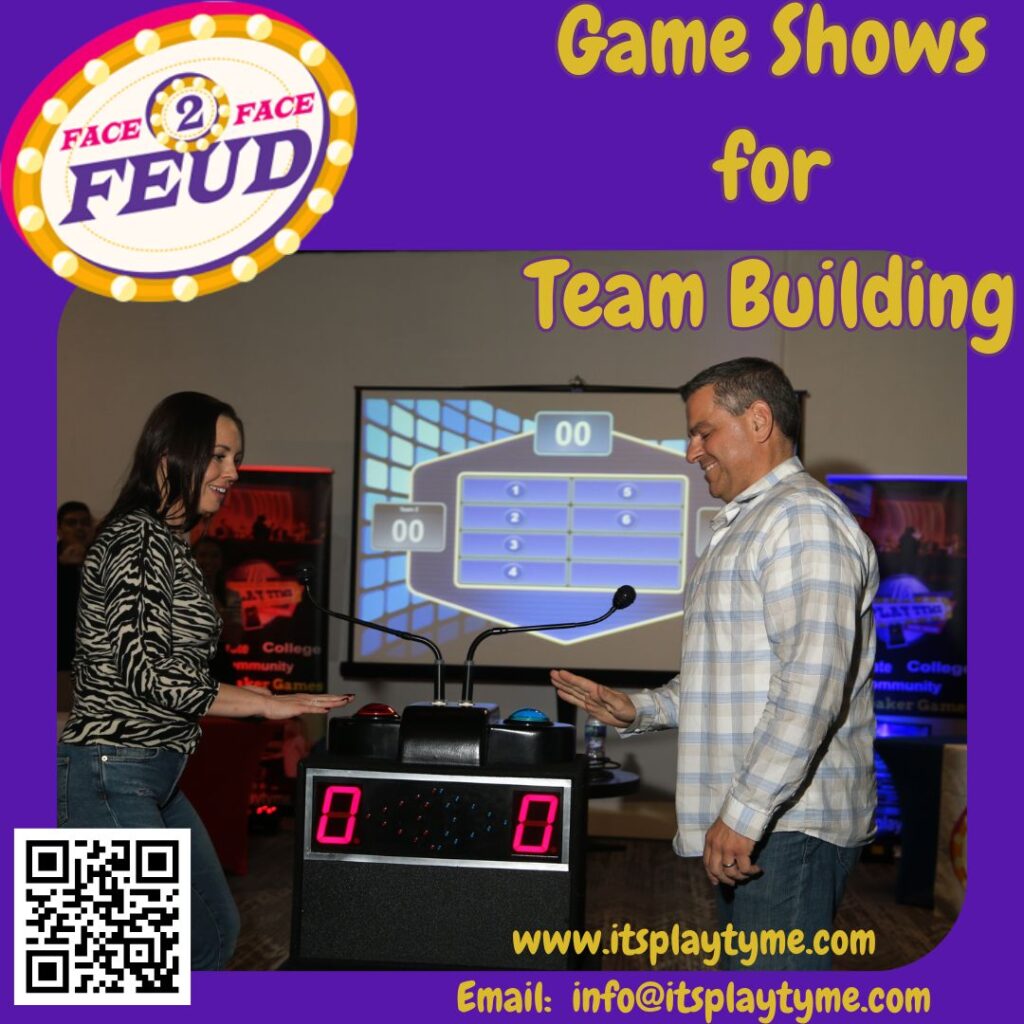
Team Building Game Shows
Conclusion: Transform Your Team with Game Show Activities
The true potential of game show team building lies in its ability to foster lasting workplace benefits and improve team performance. Exciting events that introduce game show elements are revolutionizing team engagement, moving beyond conventional meetings and trust falls.
Activities have the power to transform teams by breaking down barriers and igniting creativity, whether hosting a virtual trivia game or an in-person show at a corporate event. These activities have proven to be very effective.
The value of game show team building emerges when positive experiences translate into lasting workplace benefits through intentional connection to daily operations. Several strategies can maximize this impact:
Post-event debriefing sessions can highlight transferable skills demonstrated during the game show, such as creative problem-solving and effective communication under pressure. Leadership can reinforce these lessons by referencing specific moments in subsequent team meetings, connecting fun experiences to serious workplace challenges.
Game show activities often reveal hidden talents and knowledge among team members, creating new opportunities for individuals to contribute. Regular implementation of game show activities can foster a culture of engagement and collaboration that extends beyond single events.
Measuring the impact of game show team building through pre- and post-event surveys provides valuable data on team cohesion, communication satisfaction, and engagement levels. This data can demonstrate the ROI for investing in regular team-building activities.
Game show formats can be strategically aligned with organizational goals, from knowledge sharing to breaking down departmental silos. The shared vocabulary and experiences from game shows create lasting reference points that teams use in daily work, strengthening bonds over time.
Unlike traditional team building, well-designed game shows create relevant skill development that directly transfers to improved workplace performance. By leveraging game show team building, organizations can reap lasting benefits that enhance team collaboration and productivity.
